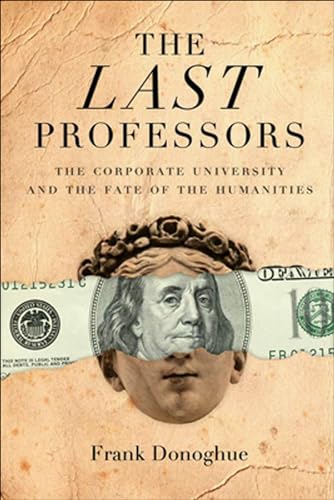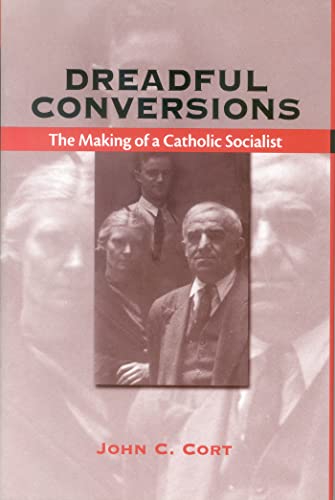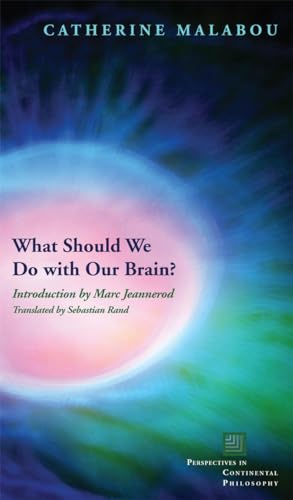fordham university press united states new york (9 Ergebnisse)
FeedbackSuchfilter
Produktart
- Alle Product Types
- Bücher (9)
- Magazine & Zeitschriften (Keine weiteren Ergebnisse entsprechen dieser Verfeinerung)
- Comics (Keine weiteren Ergebnisse entsprechen dieser Verfeinerung)
- Noten (Keine weiteren Ergebnisse entsprechen dieser Verfeinerung)
- Kunst, Grafik & Poster (Keine weiteren Ergebnisse entsprechen dieser Verfeinerung)
- Fotografien (Keine weiteren Ergebnisse entsprechen dieser Verfeinerung)
- Karten (Keine weiteren Ergebnisse entsprechen dieser Verfeinerung)
- Manuskripte & Papierantiquitäten (Keine weiteren Ergebnisse entsprechen dieser Verfeinerung)
Zustand
- Alle
- Neu (Keine weiteren Ergebnisse entsprechen dieser Verfeinerung)
- Antiquarisch (9)
Einband
- alle Einbände
- Hardcover (Keine weiteren Ergebnisse entsprechen dieser Verfeinerung)
- Softcover (9)
Weitere Eigenschaften
- Erstausgabe (Keine weiteren Ergebnisse entsprechen dieser Verfeinerung)
- Signiert (Keine weiteren Ergebnisse entsprechen dieser Verfeinerung)
- Schutzumschlag (Keine weiteren Ergebnisse entsprechen dieser Verfeinerung)
- Angebotsfoto (Keine weiteren Ergebnisse entsprechen dieser Verfeinerung)
Gratisversand
- Kostenloser Versand nach Deutschland (Keine weiteren Ergebnisse entsprechen dieser Verfeinerung)
Verkäuferbewertung
-
Scatter 2: Politics in Deconstruction
Verlag: Fordham University Press, United States, New York, 2021
ISBN 10: 0823289923 ISBN 13: 9780823289929
Anbieter: WorldofBooks, Goring-By-Sea, WS, Vereinigtes Königreich
Paperback. Zustand: Very Good. This book deconstructs the whole lineage of political philosophy, showing the ways democracy abuts and regularly undermines the sovereignist tradition across a range of texts from the Iliad to contemporary philosophy. Politics is an object of perennial difficulty for philosophyas recalcitrant to philosophical mastery as is philosophys traditional adversary, poetry. That difficulty makes it an attractive topic for any deconstructive approach to the tradition from which we inherit our language and our concepts. Scatter 2 pursues that deconstruction, often starting with, and sometimes departing from, the work of Jacques Derrida by attending to the concepts of sovereignty on the one hand and democracy on the other. The book begins by following the fate of a line from Homers Iliad, where Odysseus asserts that the rule of many is no good thing, let there be one ruler, one king. The line, Bennington shows, is quoted, misquoted, and progressively Christianized by Aristotle, Philo Judaeus, Suetonius, the early Church Fathers, Aquinas, Dante, Ockham, Marsilius of Padua, Jean Bodin, Etienne de la Boetie, up to Carl Schmitt and Erik Peterson, and even one of the defendants at the Nuremberg trials, before being discussed by Derrida himself. In the books second half, Bennington begins again with Plato and Aristotle and tracks the concept of democracy as it regularly abuts and undermines that sovereignist tradition. In detailed readings of Hobbes and Rousseau, Bennington develops a notion of proto-democracy as a possible name for the scatter that underlies and drives the political as such and that will always prevent politics from achieving its aim of bringing itself to an end. The book has been read, but is in excellent condition. Pages are intact and not marred by notes or highlighting. The spine remains undamaged.
-
The Last Professors: The Corporate University and the Fate of the Humanities, With a New Introduction
Verlag: Fordham University Press, United States, New York, 2008
ISBN 10: 0823228606 ISBN 13: 9780823228607
Anbieter: WorldofBooks, Goring-By-Sea, WS, Vereinigtes Königreich
Paperback. Zustand: Very Good. What makes the modern university different from any other corporation? asked Columbias Andrew Delbanco recently in the New York Times. There is more and more reason to think: less and less, he answered. In this provocative book, Frank Donoghue shows how this growing corporate culture of higher education threatens its most fundamental values by erasing one of its defining features: the tenured professor. Taking a clear-eyed look at American higher education over the last twenty years, Donoghue outlines a web of forcessocial, political, and institutionaldismantling the professoriate. Today, fewer than 30 percent of college and university teachers are tenured or on tenure tracks, and signs point to a future where professors will disappear. Why? What will universities look like without professors? Who will teach? Why should it matter? The fate of the professor, Donoghue shows, has always been tied to that of the liberal arts with the humanities at its core. The rise to prominence of the American university has been defined by the strength of the humanities and by the central role of the autonomous, tenured professor who can be both scholar and teacher. Yet in todays market-driven, rank- and ratings-obsessed world of higher education, corporate logic prevails: faculties are to be managed for optimal efficiency, productivity, and competitive advantage; casual armies of adjuncts and graduate students now fill the demand for teachers. Bypassing the distractions of the culture wars and other crises, Donoghue sheds light on the structural changes in higher educationthe rise of community colleges and for-profit universities, the frenzied pursuit of prestige everywhere, the brutally competitive realities facing new Ph.D.s that threaten the survival of professors as weve known them. There are no quick fixes in The Last Professors; rather, Donoghue offers his fellow teachers and scholars an essential field guide to making their way in a world that no longer has room for their dreams. First published in 2008, "The Last Professors" have largely had its arguments borne out in the interim, as the percentage of courses taught by tenured professors continues to dwindle. This new edition includes a substantial Preface that elaborates on recent developments and offers tough but productive analysis that will be crucial for today's academics to heed. The book has been read, but is in excellent condition. Pages are intact and not marred by notes or highlighting. The spine remains undamaged.
-
Dreadful Conversions: The Making of a Catholic Socialist
Verlag: Fordham University Press, United States, New York, 2003
ISBN 10: 082322256X ISBN 13: 9780823222568
Anbieter: WorldofBooks, Goring-By-Sea, WS, Vereinigtes Königreich
Paperback. Zustand: Very Good. For more than 50 years, John Cort has been at the center of most of the social movements of our time. Writer, reporter, teacher, activist, Cort has spent his life fighting good fights, whether on a Boston newspaper, with the Peace Corps in the Philippines, as a labor leader, or in dozens of campaigns for justice, peace and human rights. Here is John Cort's story--the measure of an exemplary life and a vivid, personal chronicle of American radicalism across virtually every major struggle. At its heart, this is also the story of what it means to take seriously the distinctively radical Catholic vision that informs American political and religious life in this century. It started in 1935, when Cort converted to Catholicism as a Harvard undergraduate. A year later, he was in New York City on the staff of the Catholic Worker, working with such legendary figures as Dorothy Day and Peter Maurin. Plunged into the class wars of the Depression, Cort began a 20-year commitment to organizing workers, notably through the Association of Catholic Trade Unionists. Later, Cort served many social action causes while continuing to teach, report, and write. Whether running a model Cities program, a newspaper guild, or a homeless shelter, or as a delegate to a world apostolic congress, Cort brought to life in his radicalism and his socialism the teachings of Catholic activism embodied most vividly by Dorothy Day and John XIII. Desperate Conversions is a unique primer in Catholic social theory, told in the chapters of John Cort's own life. Quirky, personal, distinctive, his memoir captures one of the great stories of our American century--and tells it in a voice no one can forget. The book has been read, but is in excellent condition. Pages are intact and not marred by notes or highlighting. The spine remains undamaged.
-
Poetics of Emptiness: Transformations of Asian Thought in American Poetry (American Literatures Initiative)
Verlag: Fordham University Press, United States, New York, 2011
ISBN 10: 0823231453 ISBN 13: 9780823231454
Anbieter: WorldofBooks, Goring-By-Sea, WS, Vereinigtes Königreich
Paperback. Zustand: Very Good. The Poetics of Emptiness uncovers an important untold history by tracing the historically specific, intertextual pathways of a single, if polyvalent, philosophical term, emptiness, as it is transformed within twentieth-century American poetry and poetics. This conceptual migration is detailed in two sections. The first focuses on "transpacific Buddhist poetics," while the second maps the less well-known terrain of "transpacific Daoist poetics." In Chapters 1 and 2, the author explores Ernest Fenollosa's "The Chinese Written Character as a Medium for Poetry" as an expression of Fenollosa's distinctly Buddhist poetics informed by a two-decade-long encounter with a culturally hybrid form of Buddhism known as Shin Bukkyo ("New Buddhism"). Chapter 2 explores the classical Chinese poetics that undergirds the lost half of Fenellosa's essay. Chapter 3 concludes the first half of the book with an exploration of the didactic and soteriological function of "emptiness" in Gary Snyder's influential poetry and poetics. The second half begins with a critical exploration of the three-decades-long career of the poet/translator/critic Wai-lim Yip, whose "transpacific Daoist poetics" has been an important fixture in American poetic late modernism and has begun to gain wider notoriety in China. The last chapter engages the intertextual weave of poststructural thought and Daoist and shamanistic discourses in Theresa Hak Kyung Cha's important body of heterocultural productions. By formulating interpretive frames as hybrid as the texts being read, this book makes available one of the most important yet still largely unknown stories of American poetry and poetics. The book has been read, but is in excellent condition. Pages are intact and not marred by notes or highlighting. The spine remains undamaged.
-
The Love of Learning and The Desire God: A Study of Monastic Culture
Verlag: Fordham University Press, United States, New York, 1982
ISBN 10: 0823204073 ISBN 13: 9780823204076
Anbieter: WorldofBooks, Goring-By-Sea, WS, Vereinigtes Königreich
Paperback. Zustand: Very Good. The Love of Learning and the Desire for God is composed of a series of lectures given to young monks at the Institute of Monastic Studies at Sant'Anselmo in Rome during the winter of 1955-56. The book has been read, but is in excellent condition. Pages are intact and not marred by notes or highlighting. The spine remains undamaged.
-
Pure Act: The Uncommon Life of Robert Lax (Catholic Practice in North America)
Verlag: Fordham University Press, United States, New York, 2015
ISBN 10: 0823268012 ISBN 13: 9780823268016
Anbieter: WorldofBooks, Goring-By-Sea, WS, Vereinigtes Königreich
Paperback. Zustand: Very Good. Excellence in Publishing Award, Association of Catholic Publishers Honorable Mention, Catholic Press Association Book Award Finalist, Washington State Book Award Pure Act tells the story of poet Robert Lax, whose quest to live a true life as both an artist and a spiritual seeker inspired Thomas Merton, Jack Kerouac, William Maxwell and a host of other writers, artists and ordinary people. Known in the U.S. primarily as Mertons best friend and in Europe as a daringly original avant-garde poet, Lax left behind a promising New York writing career to travel with a circus, live among immigrants in post-war Marseilles and settle on a series of remote Greek islands where he learned and recorded the simple wisdom of the local people. Born a Jew, he became a Catholic and found the authentic community he sought in Greek Orthodox fishermen and sponge divers. In his early life, as he alternated working at The New Yorker, writing screenplays in Hollywood and editing a Paris literary journal with studying philosophy, serving the poor in Harlem and living in a sanctuary high in the French Alps, Lax pursued an approach to life he called pure acta way of living in the moment that was both spontaneous and practiced, God-inspired and self-chosen. By devoting himself to simplicity, poverty and prayer, he expanded his capacity for peace, joy and love while producing distinctive poetry of such stark beauty critics called him one of Americas greatest experimental poets and one of the new saints of the avant-garde. Written by a writer who met Lax in Greece when he was a young seeker himself and visited him regularly over fifteen years, Pure Act is an intimate look at an extraordinary but little-known life. Much more than just a biography, its a tale of adventure, an exploration of friendship, an anthology of wisdom, and a testament to the liberating power of living an uncommon life. The book has been read, but is in excellent condition. Pages are intact and not marred by notes or highlighting. The spine remains undamaged.
-
What Should We Do with Our Brain? (Perspectives in Continental Philosophy)
Verlag: Fordham University Press, United States, New York, 2008
ISBN 10: 082322953X ISBN 13: 9780823229536
Anbieter: WorldofBooks, Goring-By-Sea, WS, Vereinigtes Königreich
Paperback. Zustand: Very Good. Recent neuroscience, in replacing the old model of the brain as a single centralized source of control, has emphasized plasticity, the quality by which our brains develop and change throughout the course of our lives. Our brains exist as historical products, developing in interaction with themselves and with their surroundings. Hence there is a thin line between the organization of the nervous system and the political and social organization that both conditions and is conditioned by human experience. Looking carefully at contemporary neuroscience, it is hard not to notice that the new way of talking about the brain mirrors the management discourse of the neo-liberal capitalist world in which we now live, with its talk of decentralization, networks, and flexibility. Consciously or unconsciously, science cannot but echo the world in which it takes place. In the neo-liberal world, plasticity can be equated with flexibilitya term that has become a buzzword in economics and management theory. The plastic brain would thus represent just another style of power, which, although less centralized, is still a means of control. In this book, Catherine Malabou develops a second, more radical meaning for plasticity. Not only does plasticity allow our brains to adapt to existing circumstances, it opens a margin of freedom to intervene, to change those very circumstances. Such an understanding opens up a newly transformative aspect of the neurosciences. In insisting on this proximity between the neurosciences and the social sciences, Malabou applies to the brain Marxs well-known phrase about history: people make their own brains, but they do not know it. This book is a summons to such knowledge. The book has been read, but is in excellent condition. Pages are intact and not marred by notes or highlighting. The spine remains undamaged.
-
Listening
Verlag: Fordham University Press, United States, New York, 2007
ISBN 10: 0823227731 ISBN 13: 9780823227730
Anbieter: WorldofBooks, Goring-By-Sea, WS, Vereinigtes Königreich
Paperback. Zustand: Very Good. In this lyrical meditation on listening, Jean-Luc Nancy examines sound in relation to the human body. How is listening different from hearing? What does listening entail? How does what is heard differ from what is seen? Can philosophy even address listening, ecouter, as opposed to entendre, which means both hearing and understanding? Unlike the visual arts, sound produces effects that persist long after it has stopped. The body, Nancy says, is itself like an echo chamber, responding to music by inner vibrations as well as outer attentiveness. Since the ear has no eyelid (Quignard), sound cannot be blocked out or ignored: our whole being is involved in listening, just as it is involved in interpreting what it hears. The mystery of music and of its effects on the listener is subtly examined. Nancys skill as a philosopher is to bring the reader companionably along with him as he examines these fresh and vital questions; by the end of the book the reader feels as if listening very carefully to a person talking quietly, close to the ear. The book has been read, but is in excellent condition. Pages are intact and not marred by notes or highlighting. The spine remains undamaged.
-
Resistance of the Sensible World: An Introduction to Merleau-Ponty (Perspectives in Continental Philosophy)
Verlag: Fordham University Press, United States, New York, 2017
ISBN 10: 082327568X ISBN 13: 9780823275687
Anbieter: WorldofBooks, Goring-By-Sea, WS, Vereinigtes Königreich
Paperback. Zustand: Very Good. In this book, Emmanuel Alloa offers a handrail for venturing into the complexities of the work of the French philosopher Maurice Merleau-Ponty (190861). Through a comprehensive analysis of the three main phases of Merleau-Pontys thinking and a thorough knowledge of his many unpublished manuscripts, the author traces how Merleau-Pontys philosophy evolved and exposes the remarkable coherence that structures it from within. Alloa teases out the continuity of a motive that traverses the entire oeuvre as a common thread. Merleau-Ponty struggled incessantly against any kind of ideology of transparency, whether of the world, of the self, of knowledge, or of the selfs relation to others. Already translated into several languages, Alloas innovative reading of this crucially important thinker shows why the issues Merleau-Ponty raised are, more than ever, those of our time. The book has been read, but is in excellent condition. Pages are intact and not marred by notes or highlighting. The spine remains undamaged.










